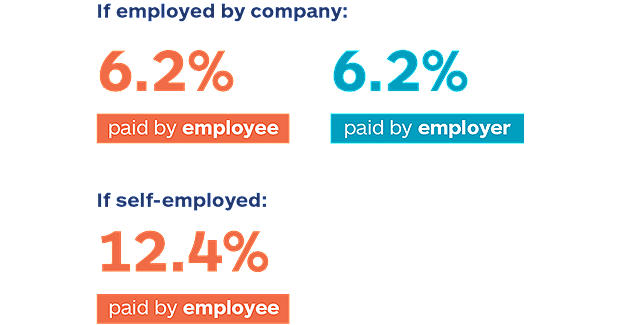THE SOCIAL SECURITY TRUST FUND IS SHRINKING
Don’t necessarily rush to receive benefits.
Article published: December 21, 2021

You probably knew the Social Security program faced challenges, but you may not have known how soon these problems could become a reality.
The Social Security trust fund is projected to be exhausted in 2034, a year earlier than previously expected, as the impact from Covid-19 continues to ripple through the economy, according to the 2021 Social Security Trustees report. This means that either benefits will have to be cut or revenues will have to be raised from somewhere.
During the Covid-19 pandemic, many Americans faced periods of unemployment, some older Americans chose to retire early, and millions of women left the workforce due to lack of child care or the increased demands from remote school. That all added up to less revenue from the Social Security payroll tax.
PAYROLL TAX FUNDS SOCIAL SECURITY PROGRAM
You may know that a payroll tax funds the Social Security program. The current Social Security tax rate is 6.2% paid by your employer and 6.2% that comes out of your paycheck on earnings of up to $142,800. Self-employed individuals must shoulder the entire 12.4% tax on their own.

The less revenue collected by the Social Security Administration via the payroll tax, the more the SSA must rely on money from the Social Security trust fund to pay out benefits. The reduced American workforce over the past two years during the Covid-19 pandemic took its toll on the shrinking Social Security trust fund.
What does this mean for you? When the Social Security trust fund is depleted, the government will rely strictly on the revenue from payroll taxes to pay out benefits. Currently, the Trustees say the program will be able to pay 78% of scheduled benefits – unless Congress acts to make up the shortfall. That means Social Security would only pay out 78 cents for every $1 of benefits.
Since it now looks like the Social Security trust fund will run out of money in 13 years, unless Congress takes action, some people are wondering whether they should claim benefits as soon as they can. You can begin receiving benefits as early as age 62. But for every year you wait, your benefits increase, and you can earn delayed retirement credits of up to 8% each year from your Full Retirement Age to age 70. On that basis, it seems logical to wait until age 70. But 95% of retirees don’t wait: Only 5% begin their benefits at age 70 and nearly a third (30%) start taking their benefits at 62.
INVESTIGATING SOCIAL SECURITY BENEFIT WITHDRAWAL AGE BECAUSE THE SOCIAL SECURITY TRUST FUND IS SHRINKING
So, when is the best time to start receiving benefits? The answer depends on how long you will live. The crossover occurs at about age 80: By then, a person starting at age 70 will have cumulatively collected more from Social Security than someone who started at age 62.
That’s why we previously advised that you should delay starting your benefits until age 70 if you plan to live beyond age 80. But with the pressures facing Social Security and the depleting trust fund, we wondered whether we needed to change that advice. Therefore, we built numerous “what if” scenarios, creating and then adjusting “levers” for such factors as:
- Age (and ages of married couples, including, importantly, the difference between their ages);
- Income;
- Work history;
- Life expectancies;
- Tax rates;
- Projected investment returns; and
- Survivor income needs.
After extensively analyzing the data, we concluded that the advice we need to provide you today is … the same as what we’ve been saying for the past 35 years. In general, you should still delay starting your benefits until age 70 if you plan to live beyond age 80. However, regardless of what spreadsheets might reveal, remember that your personal factors, such as family health history, other income sources or anticipated future financial obligations, might outweigh the math.
It is important to have a conversation with your financial planner as they can provide an individualized recommendation based on the holistic view of your financial situation. You can also ask them any additional questions or concerns you might have regarding the Social Security trust fund.



